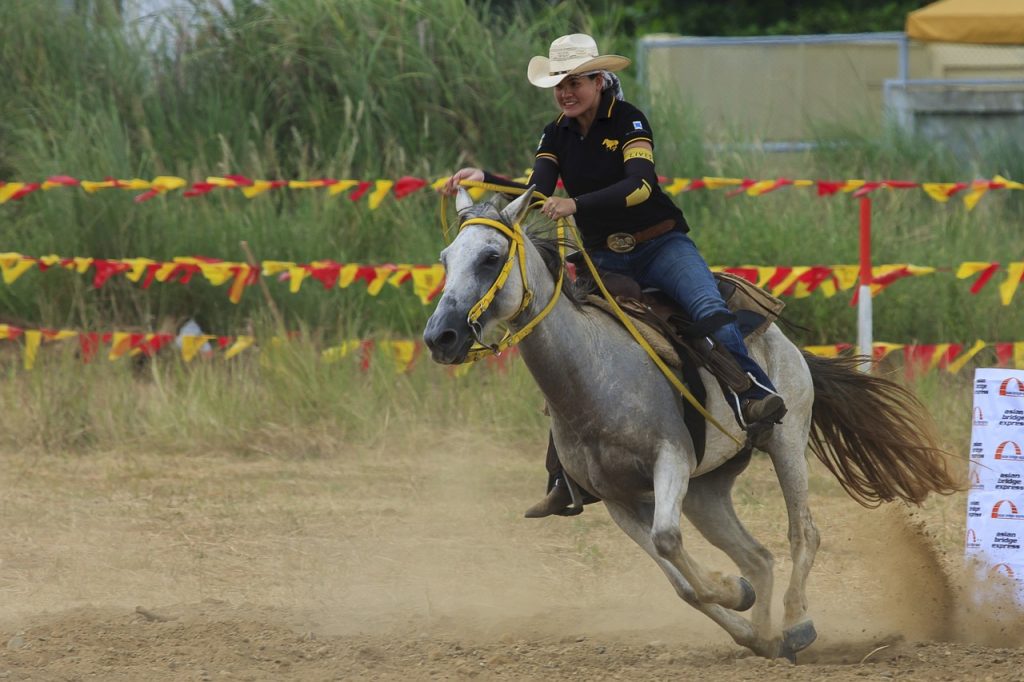
This article explores some of the most debated decisions made by referees and officials in sports, examining their impact on games, teams, and fans alike. Controversial calls can ignite a firestorm of emotions, leaving players and fans alike questioning the integrity of the game. From last-minute penalties to disallowed goals, these moments can change the trajectory of a season or even a player’s career. Imagine being on the edge of your seat, your team poised for victory, only to have it snatched away by a questionable decision. It’s like watching a magician pull a rabbit out of a hat, but instead, it’s your hopes and dreams disappearing in an instant.
Let’s dive into some infamous refereeing decisions that have left fans and players fuming. One standout moment was the “Tuck Rule” game in the 2001 NFL playoffs, where a controversial call allowed the New England Patriots to keep possession and ultimately win. The uproar was so intense that it sparked debates about the rule itself, leading to its eventual elimination. Another example is the “Hand of God” goal by Diego Maradona in the 1986 World Cup, where he used his hand to score, leaving England and the world in disbelief. These moments are etched in history, not just for the plays themselves, but for the discussions they ignited.
Controversial calls have far-reaching implications, often shaping the narratives of players and teams. For instance, a single bad call can derail a player’s momentum, affecting their confidence and performance. Think about it: a player who feels they’ve been wronged may struggle to regain their form. On the team level, these calls can alter playoff trajectories, leading to seasons defined by what could have been. The psychological toll on athletes can be immense, as they grapple with the idea that their fate was decided by someone else’s judgment.
Let’s take a closer look at pivotal games where controversial calls changed the outcome. The 1972 Olympics basketball final, where the U.S. team lost to the Soviet Union due to a series of disputed decisions, remains a hot topic. The aftermath saw players and fans alike feeling robbed of a fair shot at glory. These case studies not only highlight the impact of officiating but also serve as reminders of the human element in sports—where emotions run high and decisions can be the difference between victory and defeat.
When faced with controversial calls, players often react passionately. Their emotional responses can range from disbelief to outright fury. For example, after a dubious foul call in a crucial match, a star player might express their frustrations in post-game interviews, emphasizing the unfairness of the situation. These reactions not only reflect their dedication to the game but also resonate with fans who share in their anguish. It’s a raw, unfiltered glimpse into the heart of competitive sports.
Fan backlash can be equally intense, especially in the age of social media. A single controversial call can lead to trending hashtags and heated discussions across platforms. Fans take to Twitter, Facebook, and Instagram to voice their opinions, often rallying behind their teams in a show of solidarity. The power of social media amplifies their voices, transforming a moment of controversy into a widespread movement. It’s fascinating to see how a single decision can unite or divide a fanbase, showcasing the passionate nature of sports culture.
The long-term consequences of controversial calls extend beyond the immediate aftermath. They can lead to rule changes, increased scrutiny of officiating practices, and even the evolution of technology in sports. For instance, the introduction of video assistant referees (VAR) in soccer was largely a response to the demand for more accurate officiating. As we reflect on these moments, it becomes clear that the landscape of sports is constantly evolving, shaped by the lessons learned from past controversies.
With the rise of technology, the way controversial calls are made and reviewed has transformed dramatically. Instant replay systems have become a staple in many sports, providing officials with the tools to make more informed decisions. This shift not only aims to reduce errors but also enhances the overall integrity of the game. Fans now expect transparency and accuracy, pushing leagues to adopt innovative solutions to keep pace with the demands of the modern audience.
Across various sports, the implementation of instant replay systems has proven to be a game-changer. These systems allow officials to review critical moments, ensuring that the right call is made. While not without its critics, the effectiveness of instant replay in reducing controversial calls cannot be denied. It’s like having a safety net—providing a second chance to get it right. As technology continues to advance, we can only imagine how it will further refine the officiating process.
Looking ahead, the future of officiating in sports is ripe with possibilities. As technology evolves, we may see even more sophisticated tools that aid officials in making real-time decisions. Imagine a world where AI assists referees, analyzing plays in seconds and providing instant feedback. This could revolutionize the way we experience sports, ensuring fairness and accuracy like never before. The journey of officiating is far from over, and we’re on the brink of exciting changes that could redefine the game.
Infamous Refereeing Decisions
In the world of sports, few things ignite passion and debate quite like . These moments can turn a thrilling game into a spectacle of outrage, leaving fans and players alike questioning the integrity of the officiating. One such decision that stands out is the “Tuck Rule” game during the 2001 NFL playoffs, where a controversial call on a fumble led to the New England Patriots’ victory over the Oakland Raiders. Imagine the disbelief of Raiders fans as they watched their championship hopes slip away due to a rule that many believed was misapplied.
Another unforgettable moment occurred in the 2006 FIFA World Cup, when referee Marco Rodriguez issued a questionable red card to American player Bob Bradley during a match against Italy. This decision not only changed the dynamics of the game but also ignited a firestorm of criticism from fans and analysts, who argued that such a call could alter the course of a tournament.
To further illustrate the impact of these decisions, here’s a brief overview of some of the most notorious calls in sports history:
| Sport | Event | Year | Description |
|---|---|---|---|
| NFL | Tuck Rule Game | 2001 | Controversial call on a fumble led to Patriots’ comeback. |
| Soccer | Bradley’s Red Card | 2006 | Questionable red card altered the match dynamics. |
| NBA | Game 6 of the 2002 Western Conference Finals | 2002 | Controversial free throw calls favored the Lakers. |
These decisions not only spark debates but also leave lasting impressions on the teams involved, shaping their narratives for years to come. The emotional rollercoaster that players and fans experience during these moments is akin to watching a thriller movie where the plot twist leaves you gasping for breath. Will there ever be a way to eliminate the controversy surrounding refereeing? Only time will tell.
Impact on Players and Teams
Controversial calls in sports can send shockwaves through the careers of players and the fortunes of teams. Imagine pouring your heart and soul into a game, only for a single decision to alter the trajectory of your season. It’s not just about winning or losing; it’s about the emotional and psychological toll these decisions can take. Think about a player who has trained for years, only to have their moment of glory overshadowed by a questionable call.
For instance, consider the infamous “Tuck Rule” play in the 2002 NFL playoffs. The New England Patriots’ victory over the Oakland Raiders not only led to a Super Bowl win but also sparked debates that would last for decades. The fallout from such decisions can be monumental, affecting not just the players involved but entire franchises. Teams can experience shifts in morale, fan support, and even financial implications due to a controversial call.
Moreover, players often find themselves at the center of media scrutiny following these incidents. The pressure can lead to long-term psychological effects, impacting their performance on and off the field. For example, a player may struggle with confidence, questioning their abilities after a pivotal moment is marred by a poor officiating decision. This ripple effect can extend to the team as a whole, altering their strategy and cohesion.
In many cases, these calls can also lead to changes in team dynamics. Coaches may feel compelled to alter their game plans, and players might change their approach to avoid similar situations. The psychological impact is profound, and the narrative often shifts dramatically. Fans, too, feel the brunt of these decisions, as loyalty to a team can be tested in the wake of perceived injustices.
Ultimately, the legacy of controversial calls is complex, intertwining the fates of players, teams, and the sport itself. As the debate continues, the lessons learned from these moments will shape the future of officiating and the very essence of competition.
Case Studies of Key Games
When we think about the most controversial calls in sports, there are a few key games that immediately come to mind. These moments not only changed the outcomes of the matches but also left a lasting imprint on the players, teams, and fans involved. One such game is the infamous “Tuck Rule” game during the 2001 NFL playoffs. In a nail-biting matchup between the Oakland Raiders and the New England Patriots, a critical call on a fumble led to a game-tying drive that ultimately propelled the Patriots to victory. Fans and players alike were left reeling, questioning the very essence of the rules.
Another prime example is the “Hand of God” goal scored by Diego Maradona in the 1986 World Cup. This moment, where Maradona used his hand to score against England, sparked outrage and debate that continues to this day. To many, it was a blatant act of cheating, while others view it as a stroke of genius. The fallout from this single goal not only impacted the match but also shaped Maradona’s legacy in the world of football.
In basketball, the 2002 NBA Finals Game 6 between the Los Angeles Lakers and the Sacramento Kings is often cited as a pivotal moment. Many fans believe that questionable calls by the referees favored the Lakers, allowing them to secure a victory that many felt was undeserved. This game led to widespread allegations of referee bias and even prompted investigations into officiating practices.
These examples illustrate how a single call can ripple through the fabric of sports history, influencing narratives and altering careers. The emotional reactions from players and fans alike highlight the passion embedded in sports, making each game not just a contest of skill but also a battle of perception and integrity.
Player Reactions
When a controversial call is made, the reactions of players can be as explosive as a firework show on the Fourth of July. Imagine a player, adrenaline pumping, just moments away from a career-defining moment, only to have it snatched away by a referee’s whistle. The emotional rollercoaster they ride can be intense, filled with disbelief, anger, and sometimes even resignation. For instance, after a critical offside decision in a championship match, players often express their frustration in post-game interviews, revealing the deep impact these calls have on their psyche.
Take the infamous “Hand of God” goal by Diego Maradona as a prime example. His reaction was a mix of jubilation and defiance, knowing full well the controversy that followed. Players like him often find themselves in a whirlwind of emotions, where they oscillate between feeling cheated and needing to rally their teammates. In the heat of the moment, some players might even confront referees, hoping to plead their case, while others might just walk away in disbelief.
Moreover, social media has become a platform for players to voice their opinions on controversial calls. They often tweet or post their reactions, allowing fans to catch a glimpse of their raw emotions. For example, after a questionable foul call, you might see players sharing memes or expressing their thoughts in a humorous light, trying to cope with the absurdity of the situation. This blend of humor and frustration showcases the human side of athletes, reminding us that they are just as affected by these decisions as the fans are.
In essence, the reactions of players to controversial calls are a testament to their passion for the game. Whether they choose to express their anger openly or reflect quietly on the sidelines, these moments define not just their careers, but also the narratives that shape sports history.
Fan Backlash
When a controversial call is made during a game, the ripple effects can be felt far beyond the field or court. Fans, who invest not just their time but also their emotions into their teams, often react with a mix of disbelief and outrage. Imagine being at a nail-biting game, only to have the referee make a decision that seems utterly unjust. It’s like watching a movie you love suddenly take a turn for the worse; you can’t help but shout at the screen!
Social media has become a powerful platform for fans to voice their frustrations. In mere seconds, a hashtag can trend worldwide, encapsulating the collective fury of thousands. For instance, after a particularly infamous call in a championship game, fans took to Twitter, flooding timelines with memes, rants, and even calls for accountability. This immediate backlash can sometimes overshadow the game itself, turning referees into the main characters of a drama they never auditioned for!
Consider the following table that highlights some significant instances of fan backlash:
| Game | Controversial Call | Fan Reaction |
|---|---|---|
| 2010 World Cup | Frank Lampard’s disallowed goal | Outrage on social media, calls for goal-line technology |
| 2012 NBA Playoffs | Last-second foul call | Massive protests outside the arena, trending hashtags |
| 2019 Super Bowl | Pass interference no-call | Fan protests, petitions for rule changes |
As you can see, the backlash is often intense and multifaceted. Fans not only express their anger but also demand change, pushing for accountability from leagues and officials. They want to ensure that their voices are heard, advocating for a fairer playing field. In a way, these moments of outrage can serve as a catalyst for change, prompting discussions about officiating standards and the need for improved technology in sports.
Long-term Consequences
When we think about the of controversial calls in sports, it’s like peeling back the layers of an onion—each layer reveals a new impact that resonates far beyond the game itself. These pivotal moments not only change the course of a match but also ripple through the careers of players and the identities of teams. For instance, a single disputed call can lead to a reexamination of rules and even prompt organizations to implement significant changes in officiating procedures.
Take, for example, the infamous “Tuck Rule” call in the 2002 AFC Divisional Playoff game. The decision not only altered the outcome of that game but also sparked a chain reaction of discussions about the rule itself, ultimately leading to its elimination in 2013. This illustrates how one controversial decision can reshape the very fabric of a sport and influence how rules are interpreted in the future.
Moreover, the scrutiny of officials has intensified in the wake of these controversial calls. Fans and analysts alike are more vigilant than ever, dissecting every decision made during a game. This heightened scrutiny has led to an increase in pressure on referees, which can sometimes result in a paralyzing fear of making the wrong call, further complicating the officiating landscape.
Additionally, the advent of technology in sports officiating has been a direct response to the backlash from these controversial moments. With the introduction of systems like VAR in soccer and instant replay in football, the aim is clear: to minimize human error and enhance the accuracy of officiating. However, this technological shift has its own set of challenges and controversies, as some fans argue that it disrupts the flow of the game.
In conclusion, the long-term consequences of controversial calls extend far beyond the immediate aftermath of a game. They shape the narratives of players, influence fan engagement, and drive changes in officiating standards. As we continue to witness these moments unfold, one thing remains certain: the debate surrounding these calls will persist, keeping the passion of sports alive.
Technological Advancements in Officiating
In the fast-paced world of sports, controversial calls can ignite fierce debates and alter the trajectory of games. Thankfully, technology has stepped in to help mitigate these issues. The introduction of instant replay and systems like VAR (Video Assistant Referee) have revolutionized officiating, providing a safety net for referees who face the daunting task of making split-second decisions. Imagine being on the field, with thousands of eyes watching your every move—it’s a pressure cooker!
Instant replay systems allow officials to review critical plays, ensuring that the right call is made. These systems have been implemented across various sports, including football, basketball, and hockey. For instance, in the NFL, coaches can challenge certain calls, leading to a more accurate outcome. But does this really solve all the problems? Not quite. While technology enhances accuracy, it can also lead to lengthy delays that disrupt the flow of the game, leaving fans anxious and impatient.
Moreover, the future of officiating is likely to be shaped by ongoing technological advancements. Innovations such as AI-assisted officiating and wearable technology for referees are on the horizon. These tools promise to provide real-time data and insights, potentially eliminating human error altogether. Can you imagine a game where every call is perfect? It sounds like a dream, but the reality may be closer than we think!
To illustrate the impact of technology on officiating, consider the following table that highlights various sports and their respective technological implementations:
| Sport | Technology Used | Purpose |
|---|---|---|
| Football | VAR | Review goals, penalties, and red cards |
| Basketball | Instant Replay | Review last-second shots and fouls |
| Hockey | Video Review | Review goals and penalties |
In conclusion, while technology in officiating has its challenges, it undeniably enhances the integrity of sports. As we look to the future, the blend of human intuition and technological precision may just create a new era of officiating that fans and players alike can appreciate.
Instant Replay Systems
Instant replay systems have revolutionized the way we experience sports, providing a safety net for referees and officials who often face the daunting task of making split-second decisions. Imagine being in the heat of a game, a crucial play unfolds, and one wrong call could alter the entire outcome. With the introduction of instant replay, the pressure on officials has been somewhat alleviated, allowing them to review decisions and ensure accuracy. How cool is that?
Across various sports, instant replay has been implemented with varying degrees of success. In football, for instance, the NFL’s use of replay has become a staple, with coaches allowed to challenge specific plays. This has led to a significant reduction in controversial calls and has given teams a fair chance to contest decisions that could cost them a game. However, it’s not without its drawbacks. Some fans argue that the system can disrupt the flow of the game, turning thrilling moments into agonizing waits as everyone holds their breath for a decision.
To better understand the impact of instant replay, let’s take a look at some key statistics:
| Sport | Year Introduced | Key Benefits | Challenges |
|---|---|---|---|
| NFL | 1986 | Reduced incorrect calls, increased fairness | Game delays, potential over-reliance |
| NBA | 2002 | Improved accuracy in crucial moments | Subjectivity in review process |
| MLB | 2014 | Enhanced decision-making on home runs | Slow pace of reviews |
As we look toward the future, it’s fascinating to consider how instant replay technology might evolve. Will we see even more sophisticated systems that utilize AI to analyze plays in real-time? The potential is limitless! The integration of advanced technology could lead to a new era of officiating, where human error is minimized, and the integrity of the game is preserved. So, the next time you watch a game and see that familiar pause for a replay, remember, it’s more than just a pause—it’s a step toward a fairer and more accurate sporting experience.
Future of Officiating
The in sports is an exciting topic, filled with potential and innovation. As we look ahead, it’s clear that technology will play a pivotal role in shaping how games are officiated. Imagine a world where every call is backed by data, where referees can rely on instant feedback to make the right decisions. With advancements in artificial intelligence and machine learning, we might see systems that analyze player movements in real-time, providing referees with crucial insights that were previously impossible to obtain.
Moreover, the integration of virtual reality (VR) could revolutionize training for officials. Picture this: referees practicing in a simulated environment, facing realistic scenarios and honing their decision-making skills without the pressure of a live game. This could lead to a new generation of officials who are better prepared for the challenges they face on the field.
However, it’s not just about technology; the human element remains vital. Fans and players alike crave a connection with the officials. As much as we embrace technology, we must also ensure that referees maintain their authority and integrity. Striking a balance between tech and human judgment will be crucial. Can we trust machines to make the right calls, or will the unpredictability of human nature always be necessary?
Furthermore, we may witness shifts in rules and regulations as technology evolves. For instance, consider how the implementation of VAR (Video Assistant Referee) has already changed the dynamics of soccer. The ongoing debate about its effectiveness highlights the need for continuous improvement. Will future technologies lead to even more comprehensive systems that can eliminate errors entirely, or will they introduce new complexities?
In conclusion, the future of officiating is a blend of innovation and tradition. While technology promises to enhance accuracy and efficiency, the essence of sportsmanship will always rely on the human touch. As we embrace these advancements, we must remain vigilant in ensuring that the spirit of the game is never lost.





